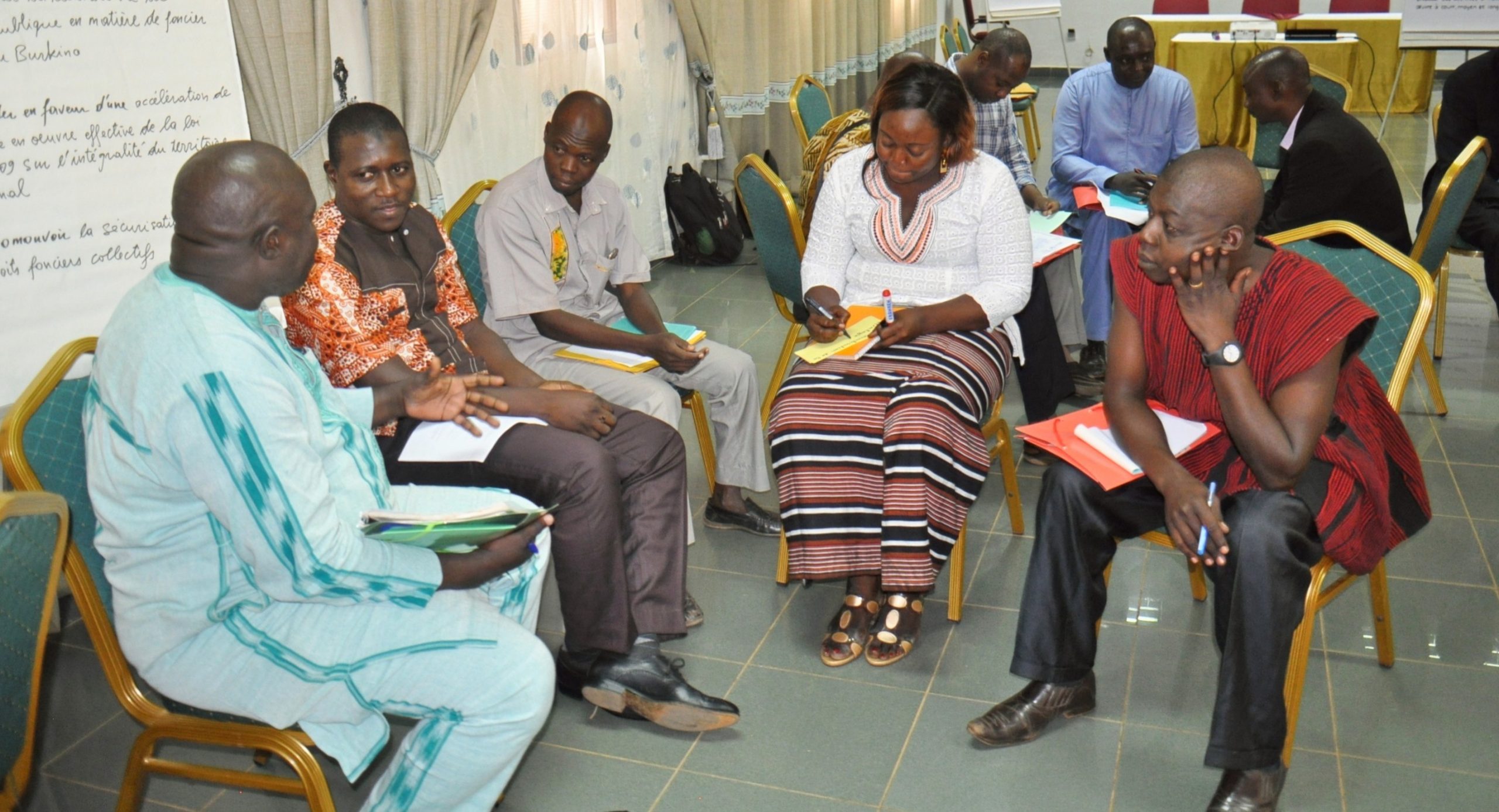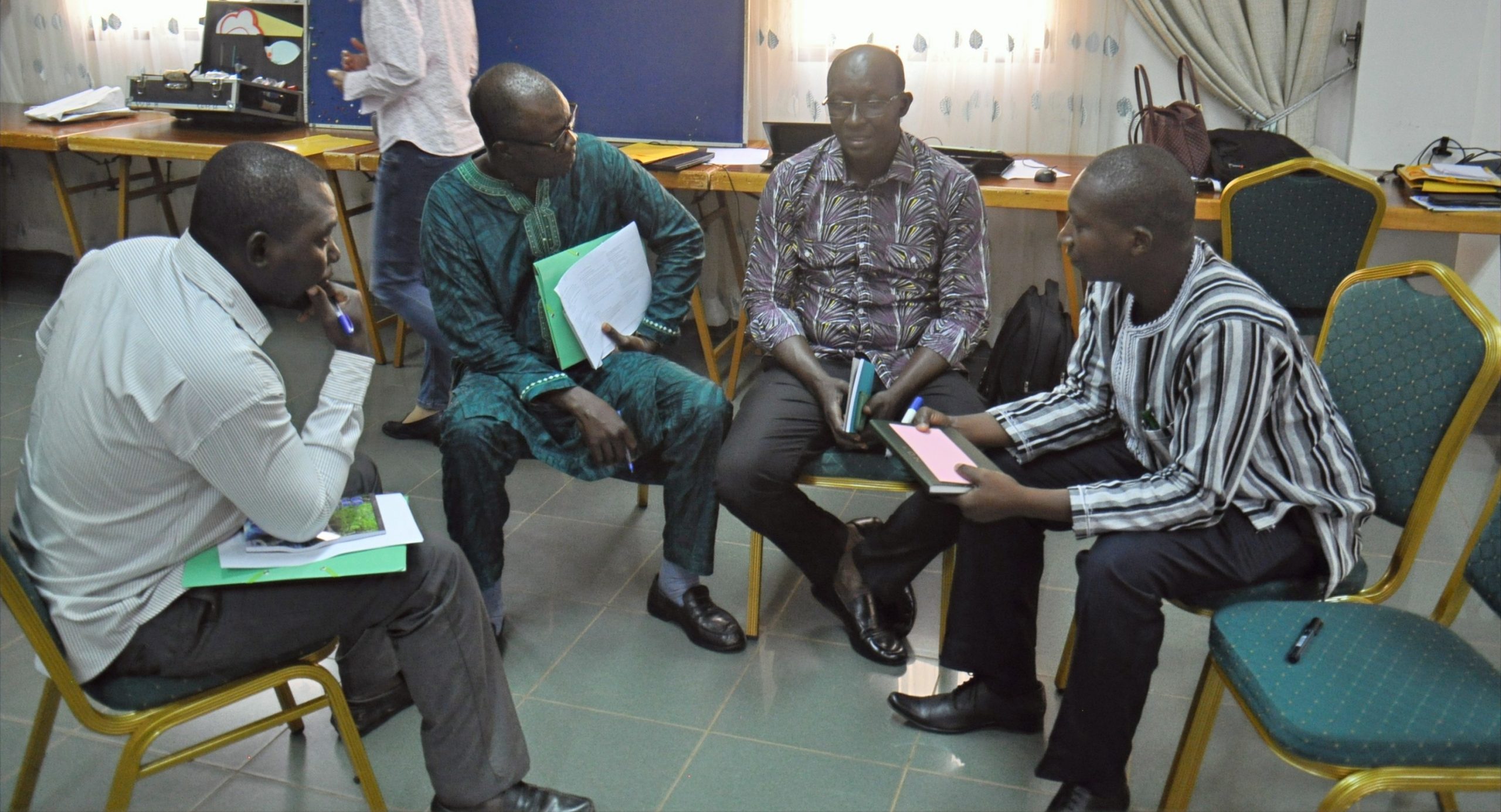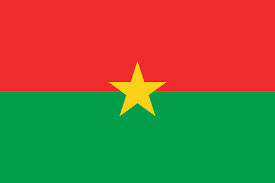BURKINA FASO
Land for Life in Burkina Faso
For a more just land governance and responsible agricultural investments, the multi-stakeholder platform was born out the collaboration between CPF and the Welthungerhilfe. It was set up in 2018 through the Land for Life-initiative. The Multi-Stakeholder Platform on Rural Land Tenure (PMAF-BF) brings together stakeholders from different sectors to advocate for land security for family farms. Its main objective is to contribute to the realization of the right to food by securing land tenure for small-scale farmers.
To achieve this, the PMAF-BF promotes policy dialogue on land tenure through the set up and running of the Platform, builds the capacities of stakeholders in land tenure and advocacy, and influences policies and decision-making in favor of land governance and responsible agricultural investments.
The multi-actor engagement process initiated through Land for Life has so far led to the establishment of a ‘Comité d’Orientation’, comprised of 13 institutions/organizations.
It is led by a representative from one of the relevant ministries and co-led by a civil society organization representative. Both functions are allocated on a rotational basis.
Based on a Country Assessment, the ‘Comité d’Orientation’ has adopted a Country Strategy with thematic priorities as well as a work plan. The platform will gradually be decentralized to the regional level. The Hauts Bassins region is the pilot for this decentralization.
The documents are only avalaible in French.
Les documents sont uniquement disponibles en français.
-
Évaluation loi 034- 2009
Note de position des OP et autres OSC à l’évaluation quinquennale de la loi 034-
2009/an du 16 juin 2009 portant régime foncier rural -
-
Le PMAF dans les Hauts-Bassins
The video are only avalaible in French.
Le vidéo est uniquement disponibles en français.

The key intervention areas which the MAP will address in the next four years are principal:
![]() the improvement of securing land rights of peasants and rural farm workers
the improvement of securing land rights of peasants and rural farm workers
![]() the improvement of women’s rights on access to land
the improvement of women’s rights on access to land
![]() the improvement of political accountability and needed action regarding land rights
the improvement of political accountability and needed action regarding land rights
![]() better transparency and responsibility in decision making regarding land rights and agricultural investments
better transparency and responsibility in decision making regarding land rights and agricultural investments
The key intervention areas which the MAP will address in the next four years are principal:
the improvement of securing land rights of peasants and rural farm workers,
the improvement of women’s right to access to land,
the improvement of political accountability and needed action regarding land rights,
better transparency and responsibility in decision making regarding land rights and agricultural investments.
The Initiative has 2 Thematic Working Groups
1. Thematic group on land rights and land governance
This group is responsible for proposing the subjects for basic training on land governance and other natural resources, and to guide reflection on the following thematic areas:
![]() National laws, politics regarding land and food security
National laws, politics regarding land and food security
![]() International and regional frameworks, conventions and politics regarding land governance
International and regional frameworks, conventions and politics regarding land governance
![]() Agro-Business/economic growth poles
Agro-Business/economic growth poles
1. Thematic group on land rights and land governance
This group is charged with proposing the subjects for basic training on land governance and other natural resources and to guide reflection on the following thematic areas:
National laws, politics regarding land and food security,
International and regional frameworks, conventions and politics regarding land governance
Agro-Business / economic growth poles.
2. Thematic group on the right to food and nutrition
This group is in charge of suggesting training themes and guide reflection on the following areas:
![]() Laws and politics on responsible agricultural investments (RAI)
Laws and politics on responsible agricultural investments (RAI)
![]() Food and nutrition security
Food and nutrition security
![]() Right to adequate food
Right to adequate food
![]() Agro-Business/economic growth poles.
Agro-Business/economic growth poles.
2. Thematic group on the right to food and nutrition
This group is in charge of suggesting training themes and guide reflection on the following areas:
Laws and politics on responsible agricultural investments (RAI)
Food and nutrition security
Right to adequate food
Agro-Business/ economic growth poles.

The challenges related to land tenure governance can be summarized in the following points:
1. the lack of knowledge regarding existing legislation by local populations
2. the ineffective application of the existing legal framework in its integrity and throughout the entire country’s territory
3. the long and costly land registration process, rendering it unaffordable for rural populations
4. the unequal and insecure access to land for youth and women under customary law
Land Rights in Burkina Faso
In Burkina Faso land tenure is structured and regulated in the national policy on security of land tenure in rural areas (PNSFMR), Law 034-2009 supporting rural land tenure (RFR), and Law 034-2012/AN supporting reorganization of agriculture and land tenure (RAF). Other texts exist and are used to manage specific matters, such as the environmental code, the mining code, and the town planning code. The 2009-RFR establishes three categories of rural land: government land, land owned by local governments/local authorities, and private land. Most rural land is governed according to customary and informal rules which differ between communities. Relatively few land rights have been formalized. While Burkina Faso’s Constitution guarantees the right to property irrespective of gender, women generally continue gaining access to land through their husbands.
Disputes over land are widespread across the country. They might increase their frequency and scale due to population growth, degradation of natural resources and multiple land tenure regimes. Multiple land tenure regimes create confusion and openings for opportunism. Businesses, real estate companies, large-scale development projects or simply individuals acquire large extensions of land. Consequently, local smallholders are converted into dependent farm workers leading their families into distress.
According to 2018 Prindex data the above-described perception was particularly pronounced in rural areas where almost 1in 2 persons indicated being tenure insecure (48%). Burkina Faso displayed the highest level of perceived tenure insecurity among all African countries assessed. The Prindex data is developed by a joint initiative of the Global Land Alliance and Overseas Development Institute. They aim to measure tenure security at national level worldwide as one of the indicators to assess progress on SDG1.

Capital: Ouagadougou
Population: 20.3 Mio.
Country area: 273,600 km²
Agricultural area: 44,2%
(Source: World Bank, 2019)
